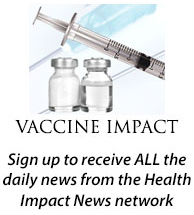by Dr. Mercola
Curious about the prevalence and extent of scientific misconduct, researchers at the University of Illinois at Chicago’s Center for Pharmacoeconomic Research investigated the reasons why research studies were retracted, and from wherei.
The highest number of incidents of misconduct occurred in the drug literature, as compared to general biomedical literature. Nearly 75 percent of the retracted drug studies were attributed to scientific misconduct, which includes:
- Data falsification or fabrication
- Questionable veracity
- Unethical author conduct
- Plagiarism
This is a significant rise when compared to a 1998 review—cited in the featured NewsWise article—in which 37 percent of scientific retractions between 1966 and 1997 were due to scientific misconduct. Even more shocking: According to data from Thomson Reuters, the numbers of scientific retractions have climbed more than 15-fold since 2001ii!
The most unfortunate thing about this is that these are the types of studies many health care professionals rely on to make treatment recommendations. Large numbers of patients can be affected when false findings are published, as the average lag time between publication of the study and the issuing of a retraction is 39 months. And that’s if it’s ever caught at all.
Just How Scientific is “Science-Based Medicine” Really?
I am a big believer in the scientific method, provided it’s applied appropriately that is. And that’s the key issue here. In order to qualify in the first place, the research must be unbiased, unprejudiced and free from any significant conflicts of interest. Sadly, this is not the case with most of modern medicine—especially not when it comes to drug research, as evidenced by the featured findings.
It’s quite shocking that nearly three-quarters of all retracted drug studies are due to pure falsification of data. Especially when you consider that even well-researched drugs can still have significant side effects.
Just imagine the potential for tragedy when a drug is based largely on pure fantasy!
Vioxx is perhaps one of the better examples of what can happen when a drug is manufactured and sold under false pretenses. It killed more than 60,000 people in just a few years time, before it was removed from the market. In the case of Vioxx, there are lingering questions about the soundness of the research backing the drug in the first place. Back in 2008, Dr. Joseph S. Ross of New York’s Mount Sinai School of Medicine came across ghostwritten research studies for Vioxx while reviewing documents related to lawsuits filed against Merck.
According to an April 16, 2008 article on MedHeadlinesiii:
“In about 96 journal publications, Ross and his colleagues discovered internal Merck documents and e-mail messages pertaining to clinical study reports and review articles, some of which were developed by the company’s marketing department, not its scientific department. In others, there is little evidence that the authors recruited for the report made substantial contribution to the research itself. … Some of the authors listed in the Merck study reports of concern… question the true nature of ghostwriting. One neurologist originally listed as “External author?” and then listed as Dr. Leon J. Thal, of the University of California, San Diego in the final draft, died a year ago in an airplane crash.”
An editorial published in the Journal of the American Medical Association (JAMA)iv that year by Drs. Psaty and Kronmal also questioned whether Merck might have deliberately manipulated dozens of academic documents published in the medical literature, in order to promote Vioxx under false pretenses.
Avandia is another potent example. This diabetes medication hit the market in 1999 and quickly became a blockbuster drug. By 2006 its annual revenue was $3.2 billion. A year later, a damning study published in the New England Journal of Medicine (NEJM) linked Avandia to a 43 percent increased risk of heart attack and a 64 percent higher risk of cardiovascular death than patients treated with other methods.
Between 1999 and 2007, Avandia is estimated to have caused over 80,000 unnecessary heart attacksv, although the actual numbers of people harmed or killed by the drug is still largely unknown. The most recent analysis by the Cleveland Clinic in 2010vi, which used data from 56 clinical Avandia trials, calculated that for every 37 to 52 patients who take Avandia for five years, one additional heart attack can be expected as a result of the drug. As a result, the authors of this meta-analysis estimate the number of deaths caused by Avandia to be around 48,000, between 1999 and 2009.
This is a steep price, to say the least, for a disease that does not require drugs to begin with. Avandia is a poster child for the lethal paradigm of faux science as GlaxoSmithKline, the manufacturer of Avandia, hid damaging information about the drug for over 10 yearsvii, as it would adversely affect sales!
Again and again we are confronted with indisputable evidence that the drug paradigm is about money, not health, and certainly not dependable scientific inquiry.
Since that 2007 NEJM study, data from various trials, studies and meta-analyses have consistently confirmed the dangers of Avandia, and based on the evidence amassed over the past three years, the European Medicines Agency is now recommending the withdrawal of rosiglitazone-containing diabetic drugs due to the increased risk of ischaemic heart disease. NEJM also hit the nail on its head with the statement that,
“[T]he case of rosiglitazone underscores the need for a robust evidence base to demonstrate the safety of medicines administered long-term.”
Unfortunately, a committee of independent experts recommended that Avandia remain on the US market, despite its risks, and an FDA oversight board voted 8 to 7 to accept the advice.
It’s important to understand that our current medical system has been masterfully orchestrated by the drug companies to create a system that gives the perception of science when really it is a heavily manipulated process designed to manipulate and deceive you into using expensive and potentially toxic drugs that benefit the drug companies more than it benefits your health. Across the board, drugmakers do an excellent job of publicizing the findings they want you to know, while keeping very quiet about the rest.
It’s important to realize that all research is NOT published. And it should come as no surprise that drug studies funded by a pharmaceutical company that reaches a negative conclusion will rarely ever see the light of day… What this means is that even if you scour the medical literature to determine what the consensus is on any given medical topic, what you’ll find is an overwhelming preponderance of data in favor of the drug approach that in no way, shape or form reflects the reality of the scientific investigation that went into that specific drug.
How Drug Companies Manipulate Research Evidence to Fool You
The pharmaceutical industry as a whole has become the poster-child for fraud, deception, and manipulation of science for profit. Nearly 20 percent of the top 100 Corporate Criminals listed for the 1990s were in fact drug companies!
In an online series called Transparency and Medicine featured on the web site The Conversationviii, Jon Jureidini discusses how science-based medicine is clouded by marketing departments that control and distort information in the medical literature. Jureidini is a professor of psychiatry at the University of Adelaide (Australia), who got an inside look at this murky mess while examining drug company internal documents as an expert witness in a case against a pharmaceutical company. The voluminous amounts of documents he was given access to showed “serious misrepresentation” of both the effectiveness and safety of certain drugs, with published articles making the research appear positive, while negative secondary outcomes were deleted.
When you consider that this is the type of research data that then ends up being used to make treatment decisions for years to come by many expert review panels, is it any wonder the United States has the most expensive health care in the world, while STILL experiencing a decline in life expectancy and other health indexes? The whole idea that modern medicine is science-based has become laughable, as the evidence tells a whole different story…
The Snowball Effect Caused by Fabricated Research
Last year, the Office of Research Integrity at the U.S. Department of Health found that a Boston University cancer scientist had fabricated two of his studiesix. This case is a perfect example of how even a small number of fraudulent studies can wreak havoc with the science-based paradigm. The fabricated work of Sheng Wang, PhD, was published in two journals in 2009, and he’s been ordered to retract themx.
But important studies by other scientists, like those at the Mayo Clinic, have in turn based their work on his flights-of-fantasy… As a result of the fall-out, 17 papers published in nine different research journals have been retracted, according to the Mayo Clinic.
Another example is that of Dr. Scott Reuben, a well-respected, prominent anesthesiologist, former chief of acute pain of the Baystate Medical Center, Springfield, Mass. and a former professor at Tufts University’s medical school, who in 2009 was found to have fabricated the data for 21 studies! Dr. Reuben succeeded in getting many of them published, and those studies were used to sway the prescribing habits of doctors. It was only due to a routine audit raising a few red flags that a larger investigation was later launched.
Consider the implications of this for a moment.
If one case involving just two falsified studies led to the retraction of 17 others, just imagine how many studies are affected or effectively invalidated by the 742 studies retracted between 2000 and 2010!xi
Unfortunately, despite retractions, fabricated research may still inadvertently live on, as it has been cited by other studies, and once a finding is accepted in the medical community, it’s difficult to reverse it. What’s worse, according to a 2011 study in the Journal of Medical Ethicsxii, nearly 32 percent of retracted papers were not noted as having been retracted by the journal in question, leaving the readers completely in the dark about the inaccuracies in those studies!
Beyond Fabrication—Flawed Research and Unsupported Conclusions
Peer-reviewed research published in medical journals gets the golden star of approval in the media, yet many of the findings—even if they’re not outright fabrications—can, and frequently are, incredibly misleading. One of the best exposé’s on this topic came from Dr. Marcia Angell, the former editor-in-chief of the New England Journal of Medicine (NEJM) who wrote the book The Truth about Drug Companies: How They Deceive Us and What to Do About It. According to Angell:
“Trials can be rigged in a dozen ways, and it happens all the time.”
Also, back in 2005, Dr. John Ioannidis, an epidemiologist at Ioannina School of Medicine, Greece, showed that there is less than a 50 percent chance that the results of any randomly chosen scientific paper will be true!xiii According to his study:
“Simulations show that for most study designs and settings, it is more likely for a research claim to be false than true.”
He noted problems with the experimental and statistical methods used, including factors such as small sample sizes, poor study design, researcher bias and selective reporting. In 2008, Dr. Ioannidis again showed that much of scientific research being published is highly questionable…
The system itself is in large part to blame, because journals tend to be more likely to publish studies that show dramatic results, positive results, or results from “hot” competitive fields. For instance, a Cochrane Collaboration review and analysis of published flu vaccine studies found that flu vaccine studies sponsored by industry are treated more favorably by medical journals even when the studies are of poor quality.
It Gets Worse… Nearly 90 Percent of Cancer Studies Cannot be Replicated
As if things couldn’t get any worse, disturbing news reported by Reutersxiv earlier this year showed that the vast majority of the “landmark” studies on cancer are unreliable—and a high proportion of those unreliable studies come from respectable university labs. Former drug company researcher Glenn Begley looked at 53 papers in the world’s top journals, and found that he and a team of scientists could NOT replicate 47 of the 53 published studies—all of which were considered important and valuable for the future of cancer treatments! The allegations appeared in the March 28 issue of the prestigious journal Naturexv.
“It was shocking,” Glenn Begley, now senior vice president of privately held biotechnology company TetraLogic, told Reuters. “These are the studies the pharmaceutical industry relies on to identify new targets for drug development. But if you’re going to place a $1 million or $2 million or $5 million bet on an observation, you need to be sure it’s true. As we tried to reproduce these papers we became convinced you can’t take anything at face value.”
Part of the problem, they said, is that scientists often ignore negative findings in their results that might raise a warning. Instead, they opt for cherry-picking conclusions in an effort to put their research in a favorable light. Begley’s experience echoes a report from scientists at Bayer AG last year. Neither group of researchers alleges fraud however; nor would they identify the research they had tried to replicate, Reuters said.
Clearly, if we are to ever move forward, we cannot continue basing treatments on fraudulent and/or inaccurate research… It’s important to realize that if a study cannot be successfully and reliably reproduced, it is, quite simply, wrong. In order to be truly science-based, our medical protocols and drug treatments must be based on findings that are replicable.
Sadly, much of today’s “science” is financially motivated. According to NBC Newsxvi:
“As Begley and Ellis detail it, “To obtain funding, a job, promotion or tenure, researchers need a strong publication record…Journal editors, reviewers, and grant review committees… often look for a scientific finding that is simple, clear and complete—a ‘perfect’ story. It is therefore tempting for investigators to submit suspected data sets for publication, or even to massage data.” Whatever the motivation, the results are all too often wrong.
Begley and Ellis call for nothing less than a change in the culture of cancer research. They demand more willingness to admit to imperfections and an end to the practice of failing to publish negative results. “We in the field,” they say, “must remain focused on the purpose of cancer research: to improve the lives of patients.”
How to Get Solid Information in an Era of Confusion and Corruption
Ultimately, the take-home message here is that even if a drug or treatment is “backed by science,” this in no way guarantees it is safe or effective. Likewise, if an alternative treatment has not been published in a medical journal, it does not mean it is unsafe or ineffective.
You’ve got to use all the resources available to you, including your own sense of common sense and reason, true experts’ advice and other’s experiences, to determine what medical treatment or advice will be best for you in any given situation. I advise you to remain skeptical but open — even if it is something I’m saying, you need to realize that YOU are responsible for your and your family’s health, not me, and certainly not drug companies trying to sell their wares and convince you to take dangerous “symptom-cover-ups” disguised as science-based solutions.
Since it is very well established that most prescribed drugs do absolutely nothing to treat the cause of disease, it would be prudent to exercise the precautionary principle when evaluating ANY new drug claim, as it will more than likely be seriously flawed, biased, or worse…
If you’re facing a health challenge it is best to identify a qualified natural health consultant—someone who really understands health at a foundational level and has had extensive experience in helping others resolve their health care challenges. Just make sure to see a competent regular physician to make certain any serious disorders like cancer are ruled out as well.
References:
Read the Full Article Here: http://articles.mercola.com/sites/articles/archive/2012/07/12/drug-companies-on-scientific-fraud.aspx









